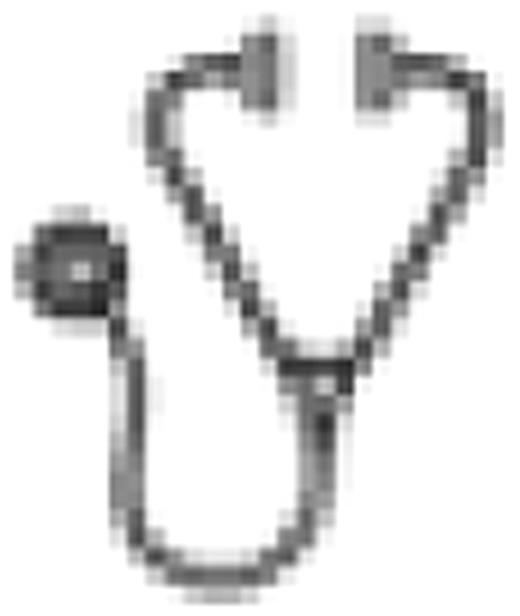Abstract
Unexplained recurrent miscarriage (RM) is extremely stressful for women and effective treatment is eagerly awaited. Aspirin and (low-molecular-weight) heparin are being used increasingly, even though evidence to support its use is not availabel. The aim of the ALIFE study was to investigate whether aspirin alone or combined with low-molecular-weight heparin, compared to placebo, improved the live birth rate in women with unexplained RM.
We conducted a multicenter, randomized, controlled trial in 8 centers in The Netherlands. Women aged between 18 and 42 years were eligible if they were diagnosed with unexplained RM and attempted to conceive or were less than 6 weeks pregnant. RM was defined as at least 2 miscarriages with an upper gestational age of 20 weeks (calculated from the first day of the last menstrual period). Unexplained RM was diagnosed in case of normal parental karyotype, the absence of uterine pathology on pelvic ultrasound, absence of antiphospholipid syndrome (lupus anticoagulant and anticardiolipin IgG and IgM), and a normal fasting level of homocysteine (< 16 μmol/L). Exclusion criteria were previous venous or arterial thromboembolism, indication for anticoagulant treatment during pregnancy or endocrine disorders.
After written informed consent was obtained, randomization was performed centrally with stratification for age (< or ≥36 years), number of previous miscarriages (2 or ≥3), and center.
Oral medication was started at the day of inclusion. Aspirin was given as calcium carbasalate 100 mg (Ascal®, Vemedia BV, Diemen, The Netherlands), equivalent to 80 mg of acetylsalicylic acid. Aspirin and placebo study medication was packed in sachets of identical appearance. Patients, doctors, and trial nurses were blinded for these treatment allocations. Women allocated to receive open-label nadroparin 2850 IU s.c. received oral aspirin and started nadroparin injections when a viable intrauterine pregnancy was confirmed by ultrasound from 6 weeks of gestational age. Aspirin or placebo was given until 36 weeks of gestational age or stopped at time of miscarriage, ectopic pregnancy or premature delivery. LMWH was given throughout gestation and stopped 12 hours before delivery.
The primary outcome measure was live birth rate. Secondary outcomes included miscarriage rate, uterine and umbilical blood flow profile and prevalence of obstetric complications. Differences in live birth rates will be expressed as relative risks and 95% confidence intervals with the placebo group as reference. Data were analyzed according to the intention-to-treat principle.
Between February 2004 and January 2008, 364 women were included in the trial. On July 1st 2009, 25 were not pregnant 2 years after inclusion, 16 were not pregnant, 8 were pregnant, 26 women had decided to withdraw from the study, and 3 had been included erroneously. The results presented in this abstract are based on a pre-scheduled interim analysis of 281 women who had reached an endpoint (live birth or miscarriage) on July 1st 2009.
| . | Aspirin . | Aspirin and nadroparin . | Placebo . |
|---|---|---|---|
| n=95 | n=91 | n=95 | |
| Live birth, n (%) | 64 (67.4) | 65 (71.4) | 67 (70.5) |
| Relative risk (95%CI) | 0.96 (0.79-1.16) | 1.01 (0.84-1.22) | 1 (reference) |
| . | Aspirin . | Aspirin and nadroparin . | Placebo . |
|---|---|---|---|
| n=95 | n=91 | n=95 | |
| Live birth, n (%) | 64 (67.4) | 65 (71.4) | 67 (70.5) |
| Relative risk (95%CI) | 0.96 (0.79-1.16) | 1.01 (0.84-1.22) | 1 (reference) |
The live birth rate did not differ between women assigned to aspirin, aspirin combined with nadroparin, and placebo. The Data Safety Monitoring Board advised the Steering Committee of the ALIFE study that further continuation of the study was futile. At the time of submission of this abstract, the database is being finalized, with closure scheduled on October 1st 2009. We will present definite data, including those of the a priori defined subgroup of women with hereditary thrombophilia, at the ASH meeting in December 2009.
Aspirin, and aspirin combined with nadroparin did not improve the live birth rate in women with unexplained RM (Current Controlled Trial number, ISRCTN58496168).
Funding: ZonMW, the Dutch Organization for Health Research and Development (945-27-003). Vemedia BV supplied study medication (calcium carbasalate and placebo). GlaxoSmithKline BV offered a grant. Funding sources were not involved in study protocol preparation, trial management or data analysis.
Off Label Use: Calcium carbasalate (equivalent to acetyl salicylic acid) and nadroparin to prevent recurrent miscarriage.. Buller:GSK: Consultancy, Honoraria, Research Funding. Middeldorp:GSK: Consultancy, Honoraria, Research Funding.

This icon denotes an abstract that is clinically relevant.
Author notes
Asterisk with author names denotes non-ASH members.

This feature is available to Subscribers Only
Sign In or Create an Account Close Modal